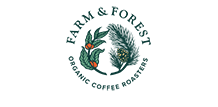This spring, Nature Conservancy of Canada suggests ways to help nature close to home
Help nature in your own community
As the mercury slowly rises, many Canadians are making springtime plans for their lawns, backyards, flower beds and gardens. While “No Mow” and “Slow Mow May” have been tried by many people over the past couple of springs, the Nature Conservancy of Canada (NCC) is encouraging people to find new ways to naturalize their yards.
The not-for-profit land conservation organization says that growing native plants is a small act of conservation that helps urban wildlife and biodiversity in many ways. With about 80 per cent of Canadians living in urban settings, what we choose to put into our yards and on our balconies can benefit the plants and animals that share our neighbourhoods.
Samantha Knight, NCC’s national conservation science manager, says actions we take close to home can help some wildlife populations, improve the health of urban ecosystems and foster our connection with nature.
“We often think of the spaces where we live as separate from nature, but they are an integral part of the ecosystem. The plants we choose to grow will have a significant influence on the diversity and abundance of native wildlife. Native trees, shrubs and wildflowers support a greater diversity of pollinators and other insects than traditional horticultural plants and are an opportunity to learn about local biodiversity.”
By devoting even a small portion of their lawn, garden or balcony planters to native species, people in Canada can give biodiversity a big boost. That’s why NCC encourages people to challenge themselves to convert a portion of their growing space to a haven for native species, as a way to support the plants, insects and animals that are our natural neighbours.
Here are some tips and things to consider when planning a native species garden:
- Find out what kind of soils and plant communities naturally occur locally. This will inform what sorts of native plants will do best in your garden.
- Many regions have native species councils and invasive species councils, which can offer information on what plants to sow and what plants to avoid, when planning a native garden. Visit the Canadian Council on Invasive Species “Be Plant Wise” program for more information.
- Garden centres and local native plant suppliers can tell you where their plants come from and in what conditions they grow best. Sticking to plants adapted to grow locally is a good way to support regional biodiversity and to ensure your garden flourishes.
- Native plants have evolved alongside wild bees, butterflies and other pollinators. As a result, they provide better habitat than non-native ornamental varieties do.
- People can consult experts, read a book on local species or use an app like iNaturalist to identify plants already growing in their yards. For details on some commonly found invasive species, visit NCC’s website.
“Spending time in nature is good for our physical and mental health. Planting native gardens invites nature in and offers refuge for local wildlife. It’s a good way to connect to nature, get the whole family involved and watch the fruits of your labour flourish,” said Knight.
About
The Nature Conservancy of Canada (NCC) is the country’s unifying force for nature. NCC seeks solutions to the twin crises of rapid biodiversity loss and climate change through large-scale, permanent land conservation. As a trusted partner, NCC works with people, communities, businesses and government to protect and care for our country’s most important natural areas. Since 1962, NCC has brought Canadians together to help conserve and restore more than 15 million hectares. To learn more, visit natureconservancy.ca.
Learn More
Follow us on on X (formerly Twitter): x.com/NCC_CNC | x.com/NCC_CNCMedia
Find us on Facebook
- 30 -




